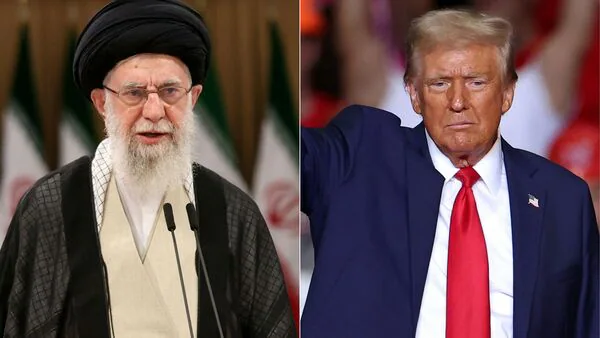The Pentagon has announced that recent US military strikes on Iran have delayed the countrys nuclear programme by one to two years, echoing President Donald Trumps assertion that Irans capabilities were obliterated. Defense Department spokesperson Sean Parnell told reporters on Wednesday that three key Iranian nuclear facilities targeted by American forces had been destroyed in what he described as a bold operation. We have degraded their programme by one to two years at least, Parnell said, citing internal intelligence assessments. The strikes, carried out with B-2 stealth bombers on June 21, were launched during a 12-day war between Israel and Iran. Trump has repeatedly insisted the attacks wiped out Irans nuclear infrastructure like nobodys ever seen before. However, an earlier leaked US intelligence assessment suggested the strikes only delayed Irans programme by months and failed to destroy critical components. Tehran, for its part, has provided limited information. While some Iranian officials acknowledged serious damage, Supreme Leader Ali Khamenei dismissed Trumps claims as exaggerated. The International Atomic Energy Agency (IAEA) has also struggled to verify the aftermath. Its director, Rafael Grossi, told CBS News last week that it was unclear if containers holding Irans highly enriched uranium were damaged or simply relocated ahead of the attacks. Satellite imagery captured trucks leaving Fordow, Irans largest enrichment facility, before the bombings. Grossi warned that Iran could restart uranium enrichment within months, raising concerns about how quickly the programme might recover. Enrichment is a critical step toward producing nuclear fuel or potentially a bomb. Since the strikes, Irans parliament has passed a law suspending cooperation with the IAEA, accusing the agency of failing to condemn the US and Israeli attacks. As a result, Irans nuclear activities are now largely outside international oversight. The attacks have also sparked legal questions. Under the Geneva Conventions, assaults on installations containing dangerous forces, such as nuclear facilities, are generally prohibited. Tensions escalated rapidly after Israel launched a major offensive on June 13, claiming it was acting to prevent Iran from developing a nuclear weapon. Iran has consistently denied seeking a bomb, while Israel is widely believed to possess an undeclared nuclear arsenal. The conflict killed hundreds of Iranian civilians, including nuclear scientists and military figures. Iran retaliated with missile barrages that struck Israel, killing 29 people. Ten days into the fighting, the US joined Israel in bombing Irans nuclear sites. Tehran responded by launching missiles at a US air base in Qatar, though no casualties were reported. A ceasefire was brokered just hours later. Both Israel and Iran have since declared the outcome a historic victory. Israel claims it shattered Irans nuclear ambitions, while Iran argues it thwarted Israels goals by preserving its government and missile capabilities. Meanwhile, the US State Department has urged Iran to resume cooperation with international inspectors. It is unacceptable that Iran chose to suspend cooperation with the IAEA at a time when it has a window of opportunity to reverse course and choose a path of peace and prosperity, State Department spokeswoman Tammy Bruce said.The post US says strikes set back Irans nuclear programme by up to two years appeared first on Linda Ikeji Blog.
Discover more from viewnowafrica.com.ng
Subscribe to get the latest posts sent to your email.




